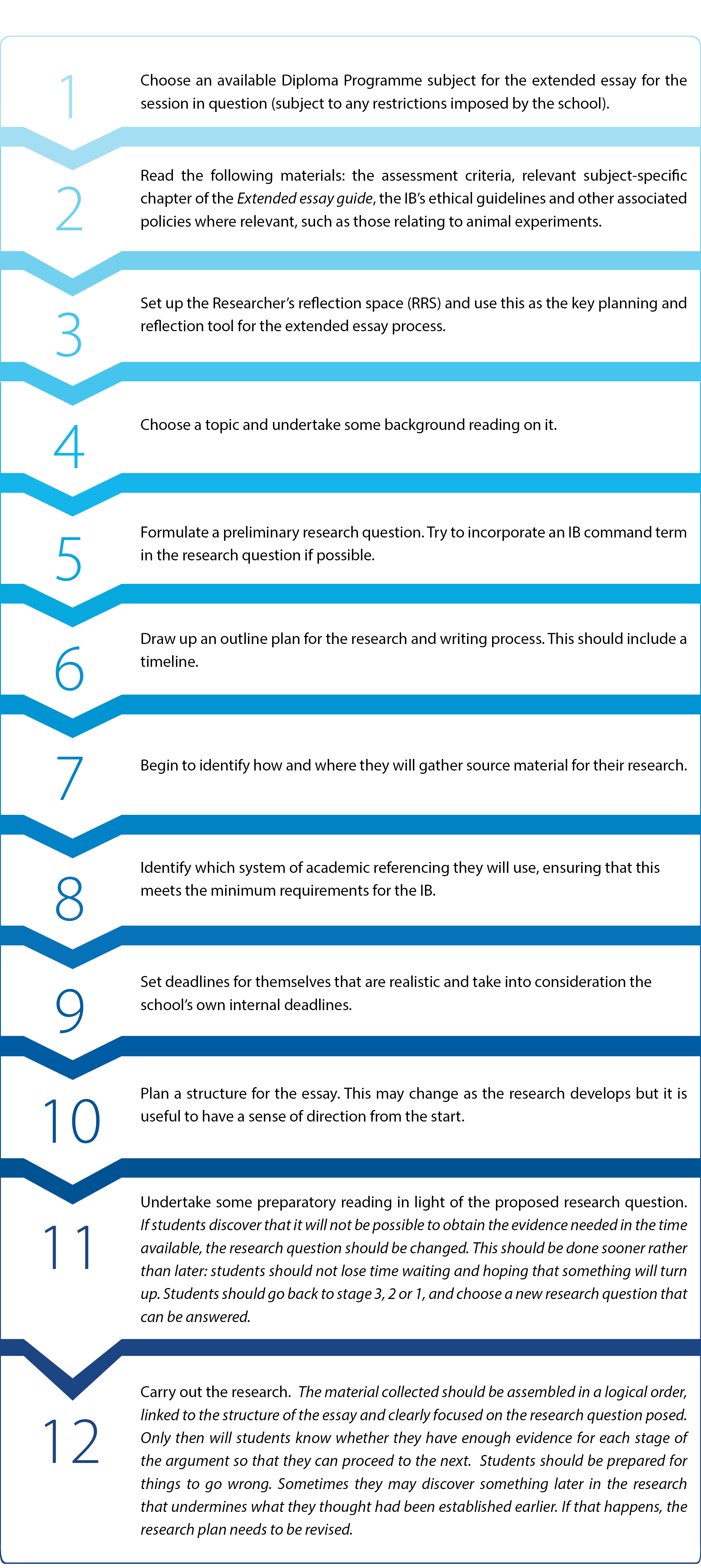Getting Started
You cannot write a successful extended essay unless you are familiar with the subject specific EE guide for your subject. Below is a document that contains all the extended essay guides. READ IT!
The Research Question

Any question you generate must have the following characteristics:
"WHY DO I HAVE TO FOLLOW THIS FORMAT FOR MY QUESTION?"
Because......
- Is it clear? Will the reader understand the nature of my research? Will it direct the research being undertaken?
- Focused: Will the research question be specific enough to allow for exploration within the scope of the task (that is, the number of words and time available)?
- Arguable: Does the research question allow for analysis, evaluation and the development of a reasoned argument?
"WHY DO I HAVE TO FOLLOW THIS FORMAT FOR MY QUESTION?"
Because......
- Criterion A - Focus and Method.
- Without a clear and focused question you will not score highly in this criterion.
- Criterion C - Critical Thinking
- A question that is debatable and open to different interpretations will give you the opportunity to display critical thinking. Questions which result in a descriptive response will not score highly.
FIVE STEPS TO AN EXCELLENT RESEARCH QUESTION
Initial guidance on research and writing
Supervisors are recommended to advise their students on how to conduct research and write the extended essay, paying particular attention to the following key areas.
When researching the extended essay, students should follow the steps below.
Supervisors are recommended to advise their students on how to conduct research and write the extended essay, paying particular attention to the following key areas.
When researching the extended essay, students should follow the steps below.

